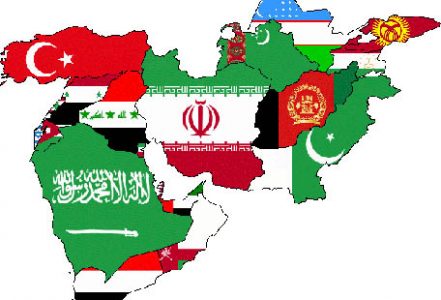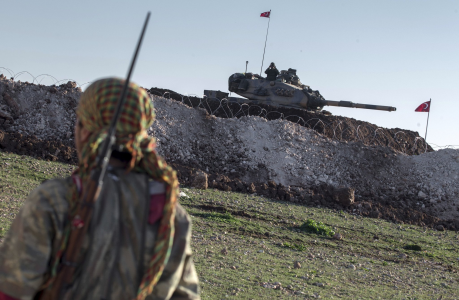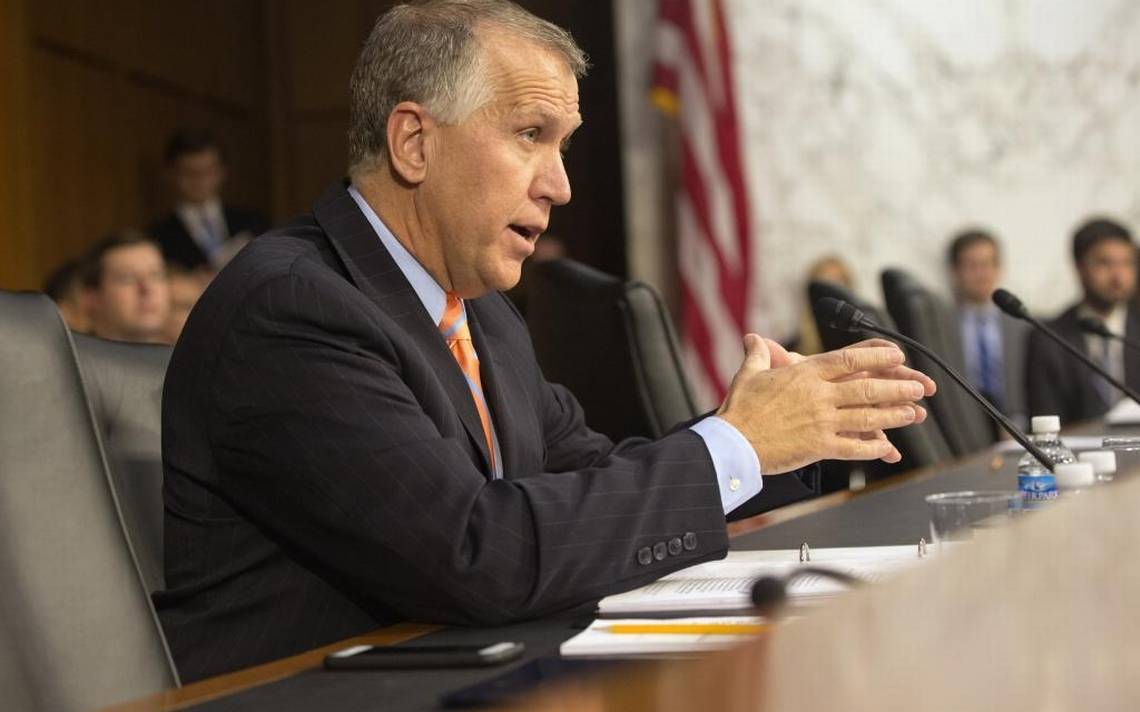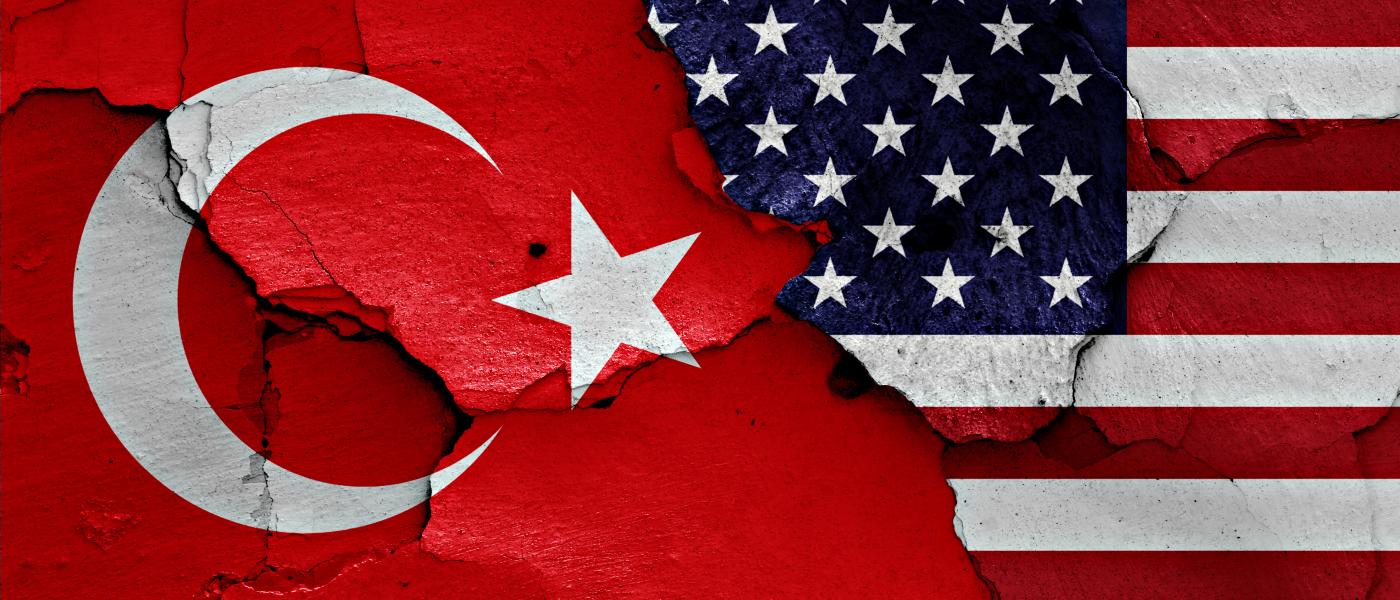Turkey’s relations with Syria either direct –bilateral or regionally multilateral- or indirect -through Turkey’s bilateral and multilateral alliances, i.e. Israel in the 1990s and NATO- have never been far from the core of Ankara’s foreign politics. Instead, they were engaged in deep-rooted, bilateral, regional and global issues, some of them century-long, ranging from the annexation of the Hatay/Alexandretta Sanjak in 1939, the PKK and the water disputes, to serving different masters during the Cold War years. In the aftermath of the Kemalist-party governments, the AKP was also bound to develop a working foreign policy towards its southern neighbor, one that would serve Turkey’s interests in the best possible way.
[authorbox authorid=”29″ ]
[dropcap size=big]I[/dropcap]n accordance with an idealistic “zero problems with neighbours” policy, emanating from Ahmed Davutoğlu’s strategic depth doctrine, the AKP adopted an approach based on mutual gains and concessions, some of them unthinkable in Turkey’s history. An exchange of official visits from presidents Assad and Sezer in 2004 and 2005 respectively, was soon followed by PM Erdoğan’s efforts to reboot Turkish-Syrian relations, largely based on personal interactions. The bilateral relationship saw a settlement of the Hatay dispute, through an indirect recognition of Turkish sovereignty over the province and an overambitious Erdoğan initiative on the settlement of the Syrian-Israeli Golan heights dispute.
All efforts, however, crumbled in 2011, as soon as the Arab Spring reached Syria. On 9 August Turkey completely suspended all bilateral agreements with Syria and since then PM Erdoğan initiated a systematic and harsh criticism of the Assad regime. The deterioration of their relations was forwarded by minor events, like the attack of Turkish pilgrim buses from Syrian forces near Homs and military fire across the Syria-Turkey border, but the turning point was the Turkish jet shoot down by Syrian anti-aircraft fire in 2012. By withdrawing its ambassador from Damascus, Turkey lost any possibility of managing the bilateral crisis in a more constructive way and weakened itself as an influential player in the area. It has become clear that Iran, along with Russia, exercised more influence in Syria than Turkey, since Erdoğan’s policy deprived Ankara from its political weight vis-a-vis Syria.

Ankara aligned itself with US policy in supporting the Free Syrian Army against the Assad regime and Erdoğan was expressing an unfounded certainty of Assad’s imminent ousting. This was in contrast with Russian policy in Syria and it gradually escalated into a capital problem for Turkey, who had developed a strong economic cooperation with Russia, prior to the Syrian crisis. The Turkish Prime Minister’s vision of a new regional order with Turkey in the leading role in the Middle East did not materialise and as Syria plunged into civil war he found himself in diverging paths with Washington’s view of a post-civil war Syria.
Erdoğan was adamant that any foreign intervention in Syria should aim at removing Assad from power, whereas US president Obama has started questioning his 2011 resolve to force Assad from power and focused on defeating the Islamic State that since 2013 has spread in Iraq and Syria. The Kobani crisis was a watershed moment for Erdoğan, as international criticism for refusing to intervene in the town siege and for failing to block the influx of jihadist militants into Syria mounted. At the same time his refusal to aid the Syrian Kurds against the ISIS also outraged Kurds in Turkey, where clashes between protesters and police in the southeast, in Istanbul and Ankara lasted for days, in the worst violence the country has seen in years and at a critical moment in the delicate peace process with the PKK.
Ankara’s downing of a Russian Sukhoi jet within Syrian airspace in November 2015 was another turning point in Turkish foreign policy and a clear indicator that its Syria policy was failing. Turkey suffered severe economic sanctions that caused heavy losses to its economic sectors which were heavily depended on Russian clientele, such as tourism, food exports and construction. Erdoğan’s reckless choices brought Turkey at a point where the two major strategic actors with conflicting interests in Syria both considered Ankara practically a foreign body. However, Erdoğan’s suggestion on September 2015, that Assad could have a role to play in the future political transition of Syria, could have been interpreted as him coming to terms with his failing Syria policy and looking for ways to restructure it.

Nevertheless, after its discontent and the subsequent rift with its western allies over Syria, the Russian crisis further isolated Turkey, at a time where Assad was reasserting his rule over the rebel forces, while in the north the Kurds –with US help- were defeating the ISIS. De-escalation in the Russian-Turkish crisis begun after the Turkish government issued an official apology according to Moscow’s wishes, towards the end of 2016. In the meantime, domestic developments in Turkey stirred further concern for the West. Erdoğan’s autocratic rule and lack of respect for the democratic institutions, the suppression of Turkey’s Kurds and the post-July 2016 botched-coup attempt witch hunt, increased western reservations; a view that was amplified by the regime changing referendum, less than a year later. On the other hand, Russia did not express any serious concerns for any of these.
The bilateral cooperation in Syria has reached new peaks. Turkey’s 2018 military operation in Afrin that targeted the YPG military units in the area, could not have materialised without Moscow’s consent and was targeting US allies. Just a few days ago though, Ankara was quick to support the western missile attacks on Syrian military installations that came as a western response to a chemical attack on the Syrian city of Douma, despite strong Russian denials that the Assad regime has used chemical weapons of mass destruction.
All of the above is proof that this is not and will not become a long lasting alliance. It is rather a convenience relationship where two strategic adversaries in Syria and the Middle East, albeit not of the same magnitude, stress on their mutual interests in cooperation, despite having conflicting approaches towards Syria. Their differences are fundamental and probably impossible to bridge. Erdoğan is after a regime change, whereas Putin supports Assad. Turkey is part of the Sunni axis in the Middle East, whereas Russia is allied with Iran and Syria that are members of the ideologically and strategically opposing Shiite axis.
The Turkish leader’s policy over Syria, since 2011 has been swinging like a pendulum between its longstanding strategic ally and its major commercial partner, being unable to pledge his loyalty to either of them. Washington is primarily focused in defeating the ISIS and is allied with Syria’s Kurds, whereas the regime change does not seem to be a priority. Erdoğan, however, has construed Turkey’s national interests in Syria on the restriction or even the elimination of any Syrian-Kurdish autonomous regions near its borders and on the ousting of the Assad regime. As the Syrian civil war is nearing its end, Erdoğan will have to settle with the fact that Turkey can’t assert direct influence in Syria and he should restructure his foreign policy on a pragmatic rather than a delusional basis, in order to best serve Turkey’s national interests.
Otherwise he will gamble again with international isolation, just like in 2016.
Opinions represented at PPJ are belong solely to the contributor of the piece and do not represent any other people, institutions or organizations that the contributor may or may not be associated with in professional or personal capacity, unless explicitly stated.
- Regional dynamics, the failure of the Sochi Agreement and Turkey’s role in the brewing crisis in northwest Syria - 21/05/2019
- Elections in March, Hydrocarbons in Cyprus and Erdoğan’s Nationalist Footsteps - 04/12/2018
- Andrew Brunson’s release and US-Turkish relations: a tale of two stories - 23/10/2018



